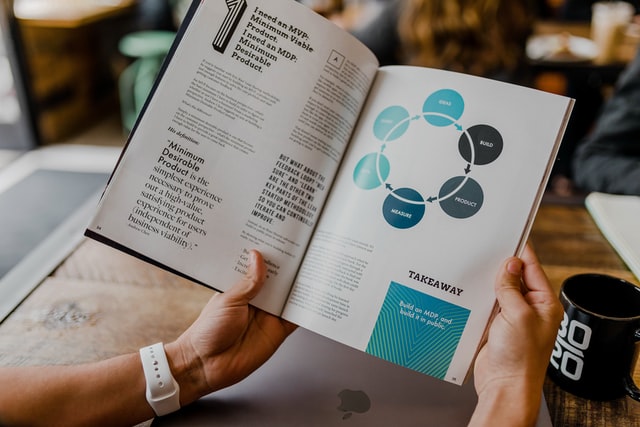Numerical calculations can be confusing and annoying if you do not know how to perform them in the right way. For this purpose, in the field of bookkeeping, accountants need to know different tools and techniques. This knowledge is abundant in books related to accounting, taxation, finance, and business; which are comprehensive and cost-effective sources of learning.
However, thousands of books are available in the market. This can leave you confused when it comes to choosing a few of them. A quick search on Google for the best books for accountants will certainly reveal numerous results. Even if you narrow down the search by sticking to a specific topic, the result pages are still in the hundreds. So, what do you do now?
Well, this post can help! It reveals the top five books for accountants, which have been compiled after thorough research.
1. Accounting for the Numberphobic – By Dawn Fotopulos
This book is an easy guide for those who are interested in knowing about the techniques or tools for measuring the overall financial health of a business. It explains how each measurement indicates the fiscal status and affects the decisions.
You get to learn about profit and loss reports, ledgers, and financial statements. The book also guides you towards maintaining balance sheets, cash flow statements, and net income statements.
2. Accounting Made Simple – By Mike Piper
This book is the choice of those who wish to get started with accounting. The author has explained in depth all the basics a novice must know, such as key accounting concepts and building blocks.
With no technical lingo, the book explains the significance of the accounting equation, techniques of reading and making financial statements, methods of calculating different financial ratios, and concepts and hypotheses behind Generally Accepted Accounting Principles (GAAP).
The book also throws light on making journal entries with debits and credits, depreciation calculation, inventory sold, and cost of goods sold.
3. Warren Buffett Accounting Book – By Preston Pysh & Stig Brodersen
Warren Buffet is recognised as one of the most lucrative investors. Based on value investing, his investing style commences with fundamental analysis prior to getting into accounting research. This book is dedicated to both new and experienced investors.
With the focus on Buffet’s principles, this book shows how to select stocks and compute their intrinsic value using different techniques. Further, you learn about the methods for reading a balance sheet, an income statement, and a cash flow statement. You also get to understand the different methods of calculating and interpreting key ratios.
4. Financial Shenanigans – By Dr. Howard Schilit, Yoni Engelhard & Jeremy Perler
Dr. Howard Schilit is an accounting professional who specialises in finding tricks in financial reports. Do you also want to be like him? Then, do read this book! The author exposes a myriad of accounting frauds, provides real examples, and shows how to identify fraud. It throws light on the most wicked frauds and lawbreakers of the past 25 years.
This book gives/describes many tools for detecting even the most modern tricks used for overstating earnings, corporate beliefs supporting unfair practices, misleading metrics indicating false financial performance, and management methods for manipulating income and cash flow. You will also comprehend how companies utilise procurements to conceal the decline of their business.
5. A Brief History of Economic Genius – By Paul Strathern
Do you think this is a boring book, as it is regarding the history of accounting? Well, you are only partially right! Although it is dedicated to the history of accounting, it is not at all boring. This is because the author describes accounting history like an action-packed film, as he unearths the secrets of theories of economics as well as mathematics.
What makes this book interesting is its explanation of how the connection between business principles and mathematics has molded the field of economics for over a couple of centuries. A critical analysis is made to explain how the field of science has influenced the financial forces.
Reading any of these books is likely to help you proceed in the right direction on your career path. At least, now you will not have to spend hours searching for books that accountants should read.
You may also like:




